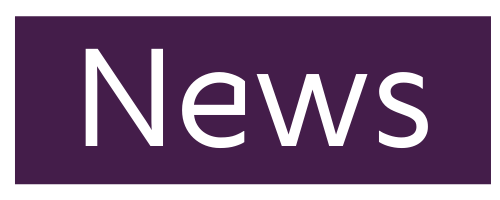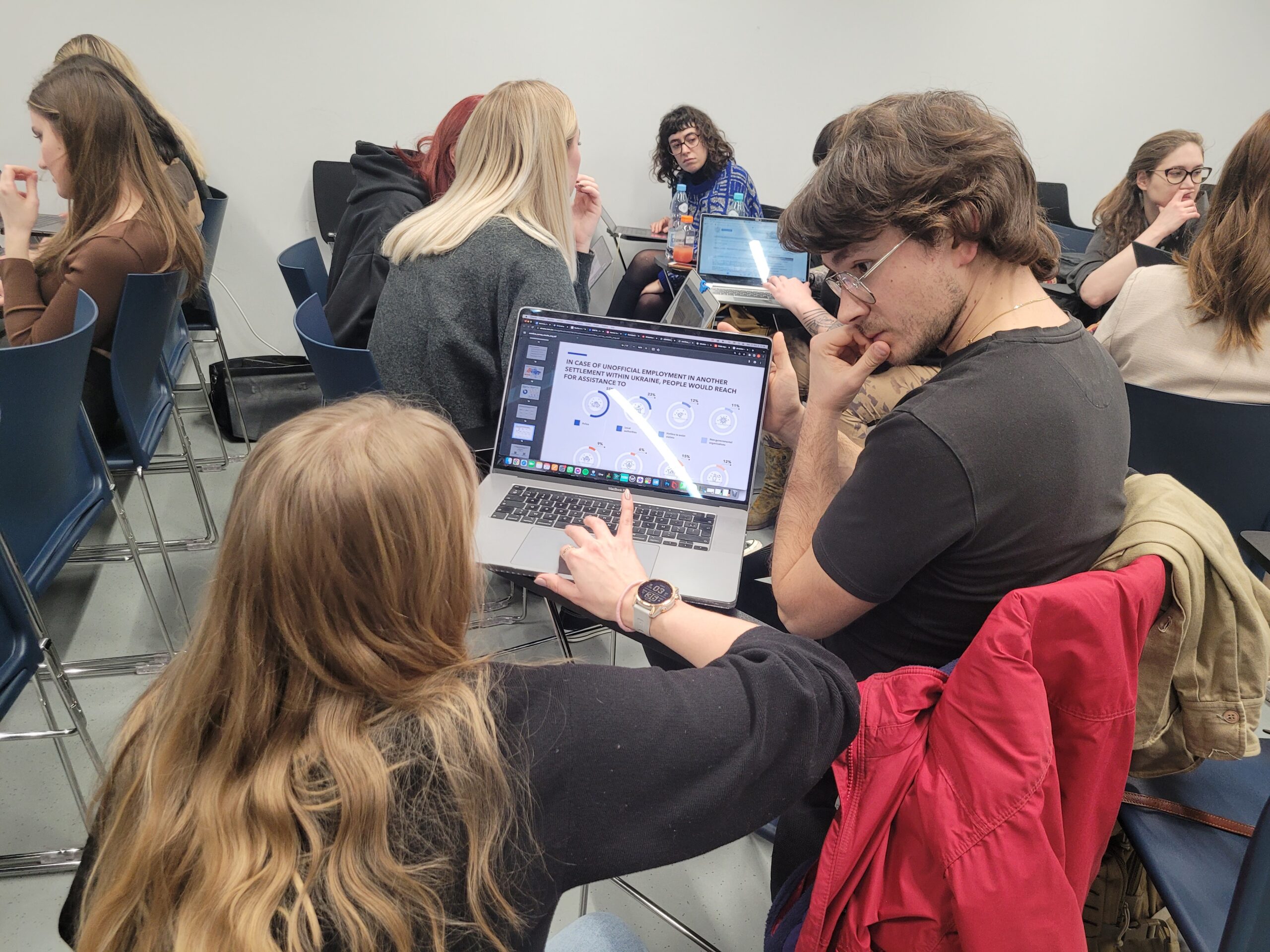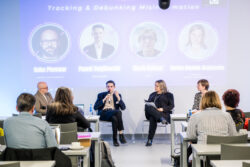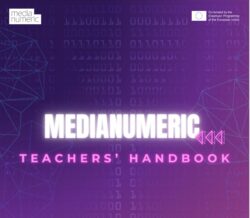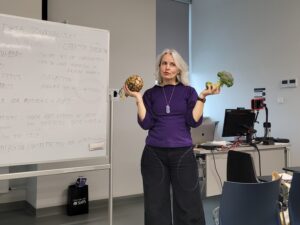In this extensive interview, Weronika Zaręba, an industry manager at Google, shares her experiences and insights on data analysis and its importance to journalism. Her role at Google involves a combination of sales, project management, and consulting. However, she spent several years as a data analyst before transitioning into her current position.
No data, no story
When asked about her involvement with the MediaNumeric programme, Weronika emphasised the importance of data literacy for individuals in humanities and related fields, as they are increasingly required to navigate the world of data-driven journalism: “The basic understanding of statistics is pretty simple, self-explanatory and logical, and it benefits people who work in journalism and humanities. You have to be able to deal with data if you want to be a journalist in a world of data.”
Expressing her thoughts on the MediaNumeric course, Weronika considers this programme highly valuable for both students and professionals within the media industry: “As someone who has worked as a data-analyst, we want our data to be used for pitches, narratives, and so on. So it’s great to be able to teach students that data analysis isn’t that scary and they can work with it on a daily basis. The students are the ones who need to use our data, so if there is no data, there is no story.”
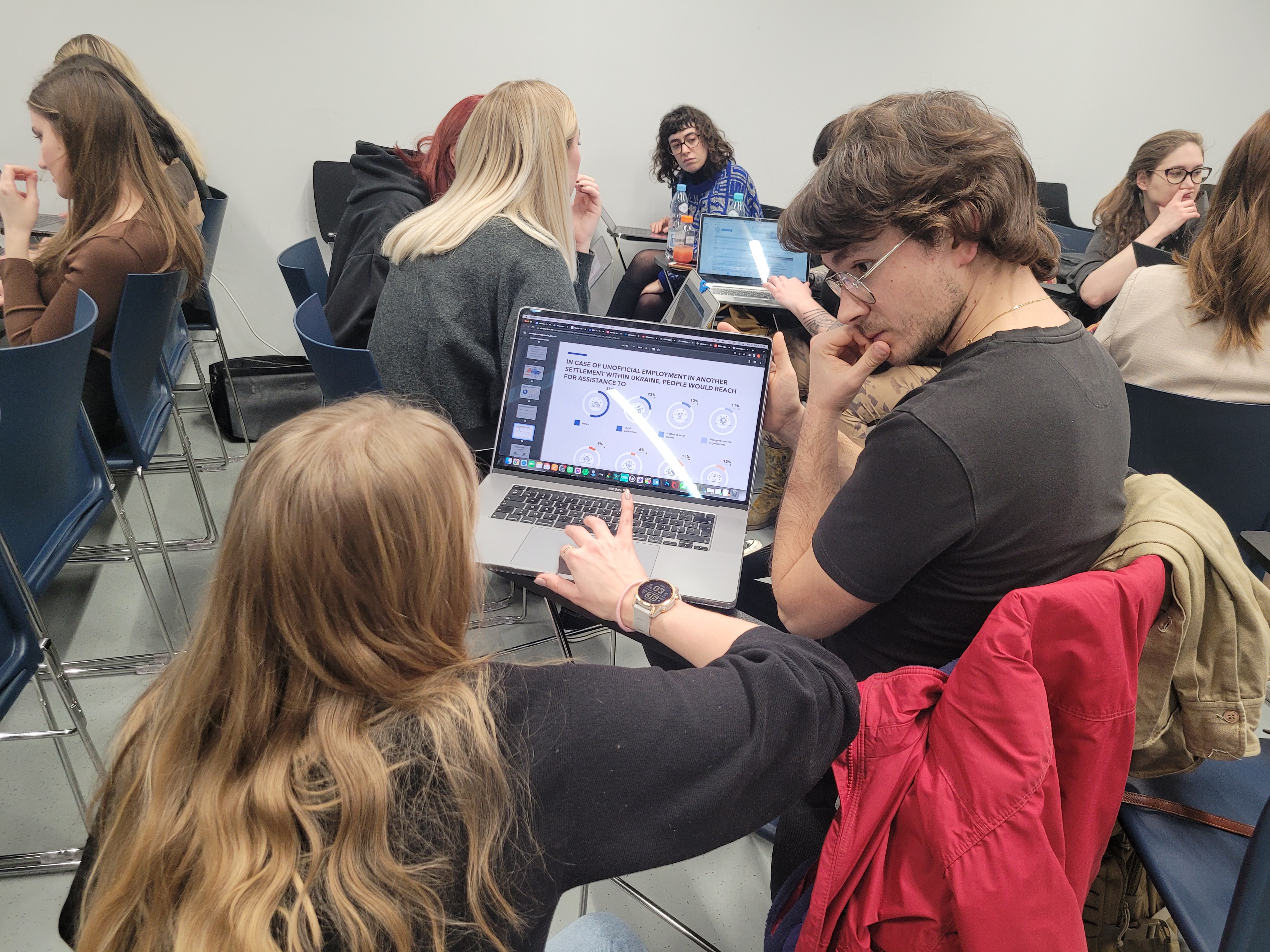
Weronika also sheds light on the significance of educating the younger generation about data-driven journalism. In the era of misinformation and deepfakes, she stresses the need for journalists to understand and critically analyse data to identify inaccuracies or biases: “Especially nowadays, in a world of misinformation, it’s super important to understand data and to figure out on your own whether data is correct or not.” She shared the phrase “Don’t let data kill a good story,” explaining that while businesses might use data to shape narratives, journalists should rely on data to create reliable stories. By empowering journalists with the ability to question data sources, methodology, and reliability, they can prevent misleading narratives from overshadowing the truth.
Be wary of data biases
In her lecture for MediaNumeric, Weronika covers various types of data, including public and private online platforms, as well as government websites. She advises students to be wary of data biases, research errors, and methodological limitations when working with different data sources.
“First of all, people always try to say a lot of good things about themselves, which might not always be completely true. We also often talk about things that are not objective. Think about medicines, side effects and pain, for example. How do you objectively compare the pain of different people? It’s hard to do.”
– Weronika Zaręba
Weronika highlights the variety of data sources available to journalists, including public and private online platforms and government websites. She cautioned that even official government data may contain biases or inaccuracies: official reports, even when based on valid data sources, may be influenced by the official narrative, catering to specific target groups or genders, thereby compromising the objectivity of the data: “We have to remember that data can be shown from different angles.”
Statistical literacy and the importance of validating data
When asked about the reasons behind society’s lack of statistical literacy, Weronika acknowledges that statistics can be challenging to understand: “Our statistical intuition is really bad and we misinterpret a lot. Also, extrapolating data from small samples to represent a global reality is a complex task, so it’s really hard to just estimate whether information is actually valid or not.”
To help journalists and data practitioners assess the reliability of data, Weronika shares some practical methods to identify data biases, understand methodologies, and critically evaluate the reliability of data sources: “Remember to carefully read the methodology section of research papers and reports, even if you don’t fully understand the mathematical aspects of it. Verify how reliable the organisation is that conducted this research. Check the reviews on those papers and see who wrote them. And last, but not least, just talk to someone who is an expert in that field, to figure out if the data is valid.”
Regarding the improvement of statistical education for future generations, Weronika suggests emphasising logical aspects during the early stages of education: “I feel that at schools, they’re maybe missing the practicality of statistics, but it’s important to tell students why statistics are important.” Rather than solely focusing on formulas and complex calculations, she believes that educators should provide a foundation in understanding the logical aspects of statistical concepts to enhance student’s statistical literacy.
The truth is somewhere in the middle
When asked how she deals with her own biases in data analysis, Weronika acknowledges that this is indeed a challenging task. She highlights the influence of social media, which rapidly feeds everyone biassed content, making it increasingly difficult to remain objective: “Someone I know suddenly started to get much more conservative content on their Instagram feed.” Upon closer inspection, they realised that the algorithm was pushing biassed news about minorities: “It shows that it’s really important to not only use or trust one data source. I always try to have my own reasoning and listen to a lot of different sources, because usually the real truth is somewhere in the middle.”
